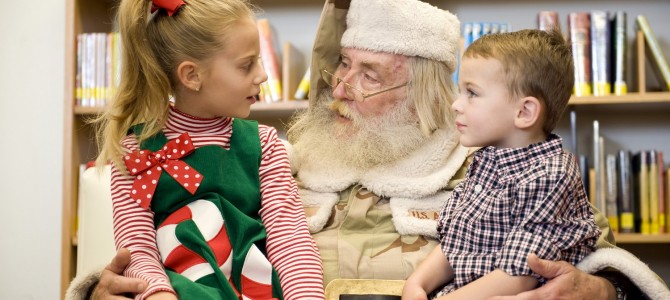When I was a child, during the first few days back at school after Christmas vacation the popular topic of conversation between friends was which presents everyone received. Did you get the hottest toy? How many presents did you have to unwrap? Did that cool relative spring for the thing you had really, really wanted and barely hoped to get? The same holds true today, perhaps more so. With more of our kids on social media, comparing not just with their local friends but with strangers countries away, the issue only seems to be growing. Your family went skiing for Christmas? So what? Someone else on Instagram got to cruise the Caribbean and opened 50 gifts, including all the new Apple products.
While we parents may be busy “keeping up with the Joneses,” comparison is not a problem reserved for adults, nor will it go away anytime soon. Lest you despair, though, parents of modern kids, this isn’t the end of the world. Inequity doesn’t become less frequent in adulthood and helping our children work through it with our guidance is ideal.
It is good for children to learn well and early that life is not fair, which helps them grow into contented adults. Learning how to handle watching a best friend get a yearned-for present paves the way for coping as an adult when someone receives that much-needed and highly sought-after promotion. Daily injustices and irritations are not something to shelter our kids from, as tempting as that may be. Our kids need to deal with these small hurts and unfairness while parents can help, rather than once they are out on their own. It is simply good parenting.
It’s Not Fun to Endure Disappointment, But Everyone Must
This parenting style may not be intuitive, though. It certainly wasn’t for me. I don’t like seeing my children disappointed, and who does? It wasn’t until my eldest went to preschool that my attitude began to shift from sheltering to helping. At that time, my husband was still a student and money was tight. It was starkly clear that while we could provide clean clothing and a tiny backpack, we couldn’t provide really fancy outfits or a brand-name bag. We couldn’t do a big theme birthday party like the other kids, and when our daughter was invited to parties finding a gift that was financially feasible but not lame was almost impossible. To be honest, I spent more than a little time feeling ashamed while trying to answer our daughter’s questions about why we didn’t do the things other families did.
There wasn’t a way to change the situation at that point, but we could change how we handled it. This wasn’t some quick easy process that led to a preschooler who never envied another child’s pretty shoes. But it did shift everyone’s thinking. It isn’t parties that make friends or clothes that decide your worth. Other people will always have nicer things.
When fairness is no longer the end goal in little matters—like birthday parties and backpack brands—children are prepared to process larger matters in the future, like cars, homes, and career paths.
Society Needs Contentment to Thrive
Past the idea of fairness lies another important lesson our children must learn, one that seems to be lacking in public discourse: contentment. Contentment and fairness are closely linked and can be taught together. It isn’t about giving up on being happy or settling for lower goals. Contentment is about satisfaction with what we have, what we’ve been given, and who we were made by God.
Yet teaching a feeling isn’t easy, especially when we may not even feel it ourselves. We can teach contentment, though, in the home within the framework of our faith, as the Bible says a great deal about this matter, as it does also about the corresponding sin of envy. It is not our homes, our jobs, nor the things we yearn for that make us valuable as people. It is our value to God that makes us worthwhile. That value is retained even when things are unfair or when others have it better.
This is a truth that lasts a lifetime. It is a truth easily forgotten, but one we can remind our children of often. These two lessons—fairness and contentment—go hand in hand, building upon each other. No, life isn’t fair. It won’t be fair when the kids are small, and it won’t become fair as they get older. Inequality is a raw fact of life, just like sickness and death. We can either stew about what we don’t have or choose to celebrate what we do. Such unfairness doesn’t end our satisfaction with what we have (or don’t have) and our contentment in that, though.
Next time your child is in the midst of comparing something in their life to someone else’s, help them work through it. Help them because this is necessary in the short term and beneficial in the long term. Once the immediate upset has lessened, remind them life isn’t fair, but contentment is still possible. For them, and for us parents. After all, the Joneses aren’t going away anytime soon.









